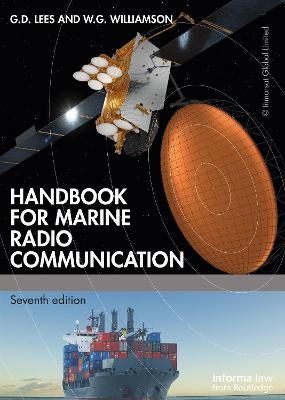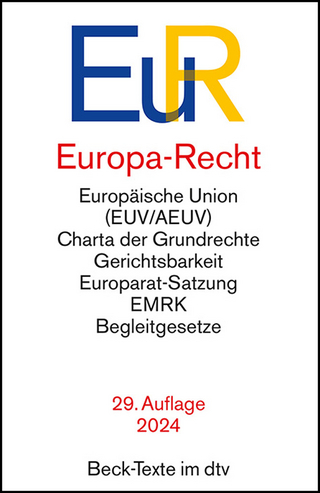
Handbook for Marine Radio Communication
CRC Press (Verlag)
978-0-367-77421-9 (ISBN)
Now in its seventh edition, this bestselling Handbook for Marine Radio Communication provides an incomparable reference source for all vessels using maritime radio communication systems, which are now a legislative requirement. It includes exhaustive coverage of all UK and international regulations relating to modern maritime communications, such as the crucial GMDSS, all contained within one singular volume.
This edition has been fully updated to account for recent major developments in the field. The authors deliver an authoritative guide to the complicated and changing world of radio communications, including:
• Information refl ecting ITU Radio Regulations 2020
• Impending modernisation of the GMDSS
• Radical changes to maritime satellite communications and associated distress and safety services
• Introduction of VHF data exchange system (VDES) to supplement coastal AIS services
• Introduction of navigational data (NAVDAT) to supplement NAVTEX services
• Improvements to COSPAS/SARSAT systems
• Introduction of AIS facility to EPIRBs
• Automatic link establishment (ALE) on HF bands
• Updating of global navigation satellite systems (GNSS)
• UK explanatory memorandum to the Merchant Shipping (Radiocommunications) (Amendment) Regulations 2021.
This is a definitive guide for today’s maritime communications industry, including ship owners, ship managers, coast guards, seafarers, students of maritime communications, as well as the recreational sector.
GRAHAM D. LEES B.Ed. (Hons); CGLI Cert. (Marine Electronics); MRGC Cert.; BOT Radar Maintenance Cert.; GMDSS GOC; TC (Manchester University) Born in Liverpool and raised in Bebington, Wirral, Graham was educated at Calday Grange Grammar School, West Kirby, and trained as a radio officer at Riversdale College of Technology, Liverpool. He spent five years serving as a radio officer, followed by a further six years as a radio and electronics officer on a wide range of UK-registered vessels, including passenger ships, general cargo, oil and chemical tankers, gas carriers, and car/bulk cargo carriers. Graham started teaching marine radio and electronics at Riversdale College in 1976 and became senior lecturer in charge of HND and GMDSS courses. After completing 21 years of teaching, he is now retired but continues his involvement in technical writing and advisory work, specializing in the training needs of those involved in marine radio communications and electronic navigational aids to industries. He retains his appointment as GMDSS examiner on behalf of MCA/AMERC and recently returned to his role on the AMERC GMDSS examiners panel. WILLIAM G. WILLIAMSON B.Sc. (Open); Eng. Tech; MIET.; 1st Class PMG.; BOT Radar Maintenance Cert.; GMDSS GOC; Cert. Ed. (Manchester University) William was born in Glasgow in 1943 and joined the Merchant Navy as a radio officer following initial training at the Glasgow Wireless College. He spent seven years at sea, during which time he served on a variety of vessels, including general cargo ships, tramps, and tankers. He continued his involvement with the marine industry as a marine electronics engineer based at Liverpool, gaining wide service experience on UK– and foreign-flagged vessels. During this period, he served for some years as an executive member of the Radio Officers’ Union. After 20 years with the Marconi Marine Company, William joined the staff at Riversdale College of Technology in 1980 as a lecturer, primarily concerned with radio officer training. Following a reorganization, he became a senior lecturer at Liverpool Community College, with particular responsibilities for all GMDSS courses, including the GOC, ROC, and LRC certificates, until he retired in 2001. He then continued to teach part time on GMDSS courses at the Lairdside Maritime Centre, Birkenhead, until he finally retired in 2015. William was a member of A MERC’s executive committee for 9 years and chaired AMERC’s Regulations Examination panel for 15 years. He is currently the chairman of the Liverpool Marine Radio and Electronics Society and the Liverpool Nautical Research Society.
Preface to the seventh edition About the authors Tables and figures Acronyms and abbreviations Glossary of terms and definitions Sources of information consulted in the production of this publication Acknowledgements
Chapter 1: Global Maritime Distress and Safety System (GMDSS) Chapter 2: Distress urgency and safety communications Chapter 3: Digital selective calling (DSC) Chapter 4: Safety related equipment and services Chapter 5: Satellite communications Chapter 6: Radio telex and data services Chapter 7: Radiotelephony (RT) Chapter 8: General regulations Chapter 9: Electronic navigation and vessel reporting systems Chapter 10: Certification Appendix 1: IMO guidelines for the avoidance of false distress alerts Appendix 2: GMDSS frequencies Appendix 3: DfT SI 1316 of 2021 Appendix 4: UK VHF channel allocation Appendix 5: ITU MF RT ship-to-shore working channels Appendix 6: ITU HF RT duplex working channels Appendix 7: Proposed 12.5 kHz spacing of VHF channels Appendix 8: Allocation of Maritime Identification Digit (MID) series Appendix 9: Watchkeeping safety - use of VHF radio and AIS Appendix 10: United Kingdom, Channel Islands, and Irish Rescue Centres Appendix 11: Table of international call sign series Appendix 12: ITU international telephone dialling codes Appendix 13: ITU international telex dialling codes Appendix 14: International Morse code signals and phonetic alphabet Appendix 15: Radio procedures in the event of piracy, armed robbery, and other acts of violence against UK merchant shipping Appendix 16: Code of safe working practices for merchant seafarers 2015 Appendix 17: Extract from MGN 305 (M+F) Amendment 1
Subject index Index of section headings
| Erscheinungsdatum | 19.05.2022 |
|---|---|
| Zusatzinfo | 16 Tables, black and white; 12 Line drawings, black and white; 6 Halftones, black and white; 18 Illustrations, black and white |
| Verlagsort | London |
| Sprache | englisch |
| Maße | 210 x 297 mm |
| Gewicht | 1040 g |
| Themenwelt | Recht / Steuern ► EU / Internationales Recht |
| Technik ► Fahrzeugbau / Schiffbau | |
| Technik ► Umwelttechnik / Biotechnologie | |
| Wirtschaft ► Volkswirtschaftslehre | |
| ISBN-10 | 0-367-77421-6 / 0367774216 |
| ISBN-13 | 978-0-367-77421-9 / 9780367774219 |
| Zustand | Neuware |
| Informationen gemäß Produktsicherheitsverordnung (GPSR) | |
| Haben Sie eine Frage zum Produkt? |
aus dem Bereich


